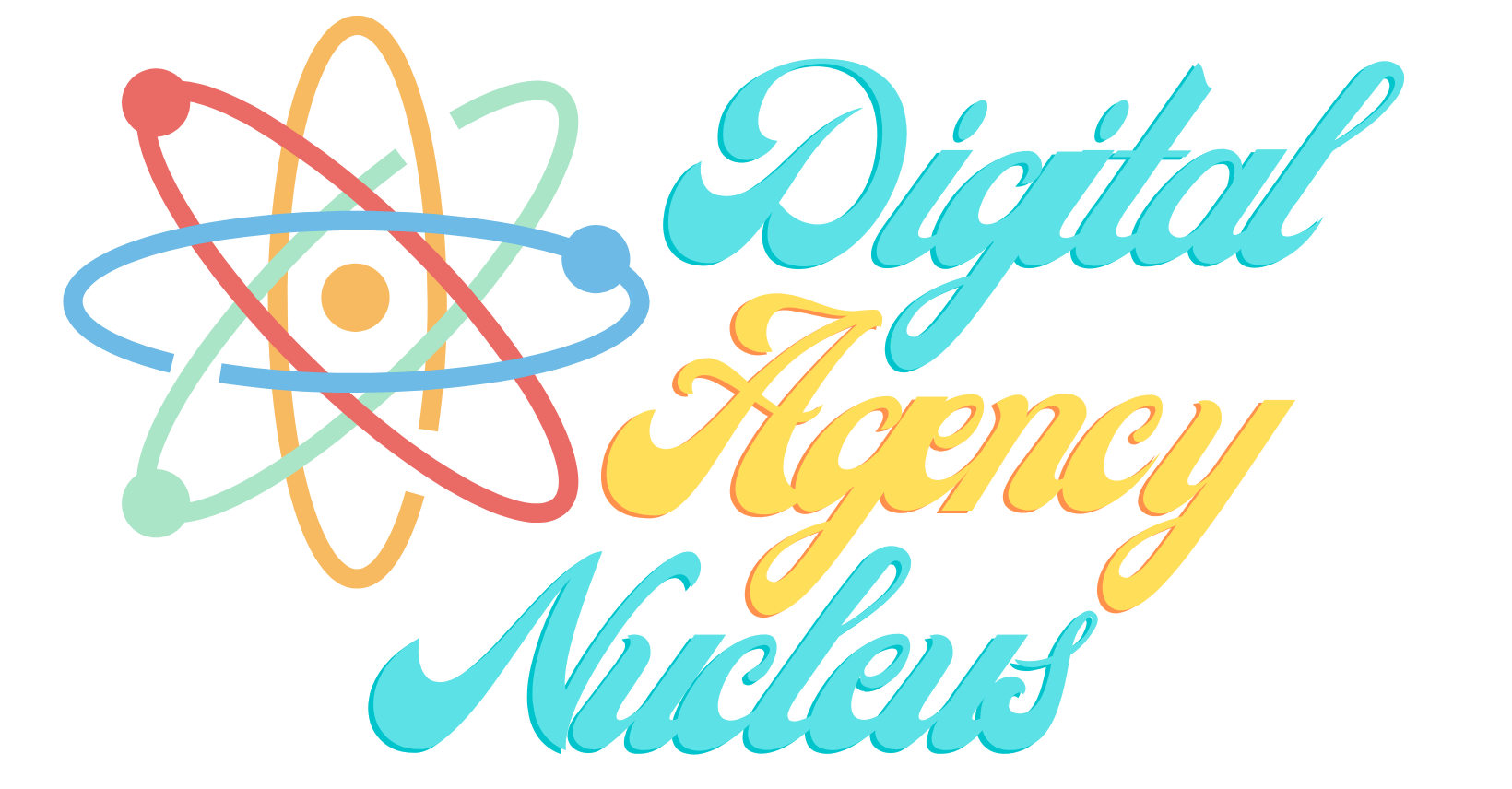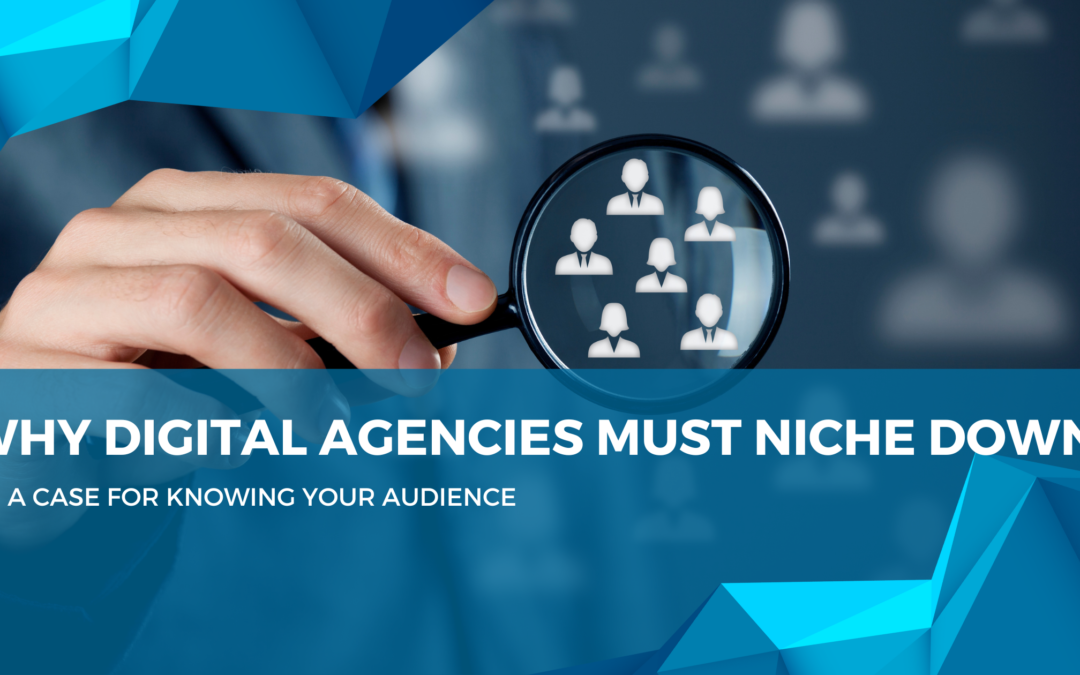“How to fail at Marketing: Don’t know your audience and try to speak to everyone.” -Jeremy G. Woods
In the competitive world of digital marketing, success hinges on understanding your audience and delivering targeted messages that resonate. For Digital Agency owners, this understanding is even more critical because agencies are looked at as the experts, and many agencies have their targeting down. Niche Marketing, driven by audience segmentation, has become an indispensable strategy. By narrowing down their target audience and speaking directly to them, Digital Agencies can unlock a world of opportunities and achieve remarkable results.
The Importance of Knowing Your Agency’s Audience
Audience Segmentation
In the vast landscape of marketing, one size does not fit all. Enter audience segmentation, a fundamental concept that can make or break your marketing efforts. Audience segmentation involves dividing a broad target market into distinct subgroups based on shared characteristics. These characteristics can include demographics, psychographics, behaviors, preferences, and more. By segmenting your audience, you gain a deeper understanding of who your customers are and how to effectively engage with them.
Segmentation is crucial for successful marketing because it allows you to tailor your strategies and messaging to specific groups. By identifying different segments within your target market, you can create targeted campaigns that resonate with each segment’s unique needs and preferences. Rather than taking a generalized approach, audience segmentation enables you to deliver personalized and relevant content to your customers, increasing the chances of capturing their attention and driving them toward conversion.
Understanding Your Audience
Knowing your audience intimately empowers you to craft marketing messages and strategies that speak directly to their desires, pain points, and aspirations. By delving into their preferences, behaviors, and motivations, you can align your messaging with their specific interests and language, establishing a connection that resonates on a deeper level. This connection builds trust and credibility, making your audience more receptive to your marketing efforts.
Segment-specific messaging allows you to showcase the value proposition of your services in a way that is most compelling to each segment. For example, if you have identified that one segment values sustainability, you can highlight your eco-friendly practices and initiatives when targeting that group. By tailoring your messages, you demonstrate that you understand your audience and are uniquely positioned to fulfill their needs, leading to stronger engagement and increased conversion rates.
Negative Consequences of Not Knowing Your Audience
Failing to understand your audience can have detrimental effects on your marketing efforts. When you attempt to market to everyone without a clear understanding of their preferences, you risk creating generic, one-size-fits-all messages that lack relevance and fail to connect with any specific group. These messages become easily ignored in a noisy and competitive marketplace, resulting in wasted resources and missed opportunities.
Additionally, without audience knowledge, you might make assumptions that misalign with the actual needs and desires of your target market. This can lead to misguided marketing strategies that not only fall flat but also potentially damage your brand’s reputation. A lack of audience understanding may result in poorly targeted advertisements, irrelevant content, and messaging that fails to resonate. Such missteps can lead to low engagement, negative brand perception, and ultimately, lost revenue.
The Pitfalls of Trying to Speak to Everyone
Targeting a Broad Audience not Wanting to Miss Potential Customers
It’s a common instinct for marketers to cast a wide net in an attempt to reach as many people as possible. The fear of missing out on potential customers drives the inclination to target a broad audience. After all, if you try to speak to everyone, you might capture a larger market share, right? However, this approach overlooks the critical principle of effective marketing: relevance.
Challenges of Crafting a Generic Marketing Message That Resonates with Everyone
Crafting a generic marketing message that resonates with everyone is a daunting challenge. When attempting to address a broad audience, marketers often end up with a watered-down message that lacks depth and fails to connect with any specific group. By trying to please everyone, they risk pleasing no one.
Different audience segments have unique needs, preferences, and pain points. They require tailored messages that address their specific concerns and aspirations. A generic message may miss the mark, coming across as impersonal, irrelevant, or even tone-deaf. It lacks the personal touch and the ability to strike an emotional chord that compels individuals to engage with your brand.
Narrowing Down Your Target Audience
The Process of Identifying and Defining a Target Audience
Identifying and defining your target audience is a crucial step in effective marketing. Rather than trying to appeal to everyone, narrowing down your focus allows you to concentrate your efforts on those most likely to be interested in your services. The process involves several key steps:
- Research: Conduct market research to gain insights into your industry, competitors, and potential customer base. Gather data on demographics, psychographics, behaviors, and preferences to inform your understanding of your target audience.
- Analyze Existing Customers: Evaluate your current customer base to identify common characteristics and patterns. Look for demographics, behaviors, and preferences that align with your services.
- Create Customer Personas: Develop detailed customer personas that represent your ideal target audience segments. These personas should include information such as age, gender, interests, motivations, challenges, and aspirations. The more specific and detailed the personas, the better you can tailor your marketing efforts. You can learn more about how to create Customer Personas for your Digital Agency here: https://medium.com/digital-agency-nucleus/discover-your-digital-agencys-ideal-customer-persona-54442cdf273
- Refine and Validate: Continuously refine your target audience based on feedback, data analysis, and market trends. Regularly validate your assumptions through customer surveys, interviews, and feedback mechanisms.
The Benefits of Focusing on a Specific Audience Segment
Focusing on a specific audience segment offers numerous advantages for your marketing efforts:
- Relevancy: By targeting a specific audience segment, you can craft highly relevant messages that speak directly to their needs, pain points, and desires. This relevance enhances the effectiveness of your marketing campaigns and increases the chances of engaging your audience.
- Efficiency: Concentrating your resources on a defined target audience allows you to allocate your budget, time, and efforts more efficiently. Rather than spreading yourself thin, you can concentrate on channels, strategies, and messages that resonate with your specific segment, maximizing your return on investment.
- Differentiation: By narrowing down your target audience, you can differentiate your brand and offerings from competitors. You can focus on unique value propositions that align with the specific needs and preferences of your chosen segment, setting yourself apart in the market.
Practical Tips and Strategies for Narrowing Down Your Target Audience
To effectively narrow down your target audience, consider implementing the following practical tips and strategies:
- Conduct Surveys and Interviews: Gather direct feedback from your existing customers and target audience through surveys and interviews. Ask specific questions about their needs, preferences, and pain points to gain valuable insights. I also mention this in The Digital Agency Owner’s Content Playbook, specifically about how to get content ideas for your audience.
- Analyze Data: Utilize analytics tools to analyze data from your website, social media platforms, and customer interactions. Identify patterns and trends that indicate the characteristics and behaviors of your most engaged audience segments. The way I chose this topic for this particular article was that I searched my LinkedIn posts for my best performing ones, and the quote from the beginning was one of the top performing posts from this year. If you have a LinkedIn Creator account, you can find yours here.
- Utilize Social Listening: Monitor social media conversations, forums, and online communities related to your industry. Pay attention to the language, challenges, and discussions happening among your target audience to refine your understanding of their preferences and interests. I really like the free tool, Google Alerts (but there are other better ones as well).
- Leverage Customer Relationship Management (CRM) Systems: Implement CRM systems to track and manage customer interactions. This helps you gather and analyze data to segment your audience effectively and create targeted marketing campaigns. While CRMs have this, you can also get this on some newsletter tools as well.
- Collaborate with Sales and Customer Support Teams: Work closely with your sales and customer support teams to gain insights into customer feedback, pain points, and common inquiries. This collaboration provides a valuable perspective on the needs and preferences of your target audience. You can also look at your knowledge base to see which pages are most viewed (or most searched). This will show you what your current audience is searching for the most.
By following these tips and strategies, you can narrow down your Digital Agency’s target audience, refine your marketing efforts, and create impactful campaigns that resonate with the specific segments you aim to reach. Remember, the more you understand your agency’s audience, the better equipped you are to deliver meaningful and effective marketing messages to your agency’s prospects.
Conclusion
In the ever-evolving landscape of digital marketing, the success of digital agencies hinges on their ability to understand and connect with their audience. By embracing the power of audience segmentation and narrowing down their target audience, digital agencies can unlock a world of opportunities and achieve remarkable results.
Audience segmentation allows digital agencies to tailor their strategies and messaging to specific groups, delivering personalized and relevant content that resonates with the unique needs and preferences of their audience segments. This targeted approach enhances the effectiveness of marketing campaigns, driving stronger engagement and increased conversion rates.
On the other hand, failing to know the audience can lead to generic, one-size-fits-all messages that lack relevance and fail to connect with any specific group. It results in wasted resources, missed opportunities, and potentially damages the agency’s brand reputation. By not understanding their audience, agencies risk low engagement, negative brand perception, and lost revenue.
Digital agencies must resist the temptation to speak to everyone and cast a wide net. Instead, they should focus on narrowing down their target audience, understanding their preferences, pain points, and aspirations. By conducting thorough research, analyzing existing customer data, and creating detailed customer personas, agencies can refine their understanding of their audience and create highly relevant and compelling marketing messages.
Focusing on a specific audience segment brings numerous benefits, including increased relevancy, improved efficiency, and differentiation from competitors. By delivering tailored messages that address the unique concerns and desires of their chosen segment, digital agencies can stand out in the market and establish themselves as industry experts.
To effectively narrow down the target audience, digital agencies should leverage practical tips and strategies such as conducting surveys and interviews, analyzing data, utilizing social listening, leveraging CRM systems, and collaborating with sales and customer support teams. These actions provide valuable insights into audience preferences and behaviors, enabling agencies to refine their targeting and deliver impactful marketing campaigns.
In conclusion, digital agencies must recognize the importance of niche marketing and audience segmentation. By knowing their audience intimately, digital agencies can create meaningful connections, build trust, and drive success in the competitive digital marketing landscape. Embracing the power of narrowing down the target audience is a vital step toward delivering impactful marketing messages and achieving remarkable results for digital agencies.


